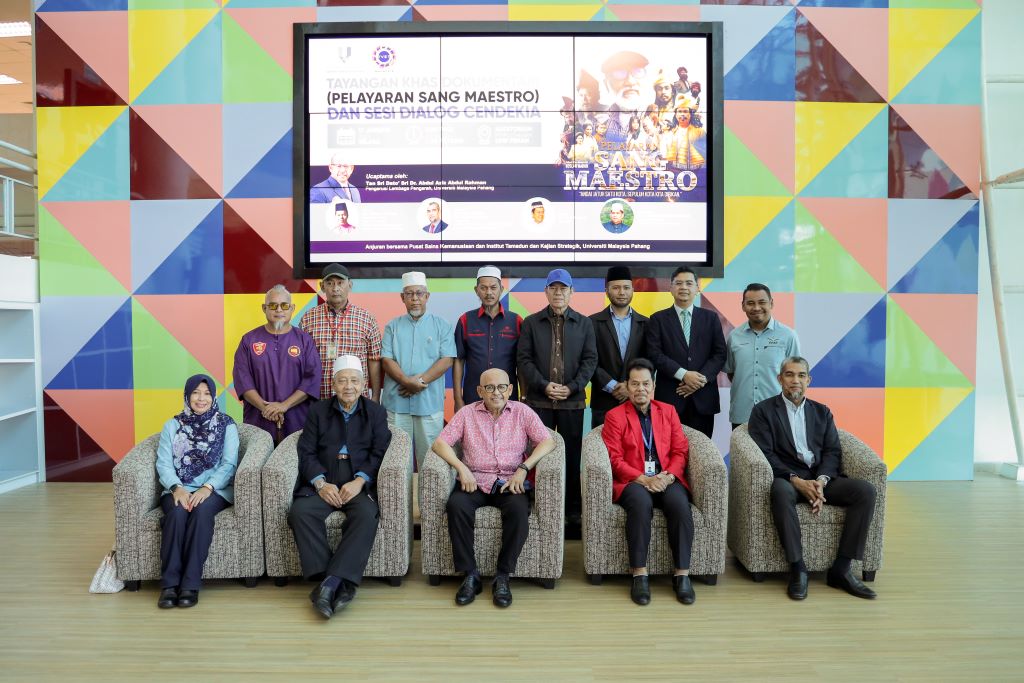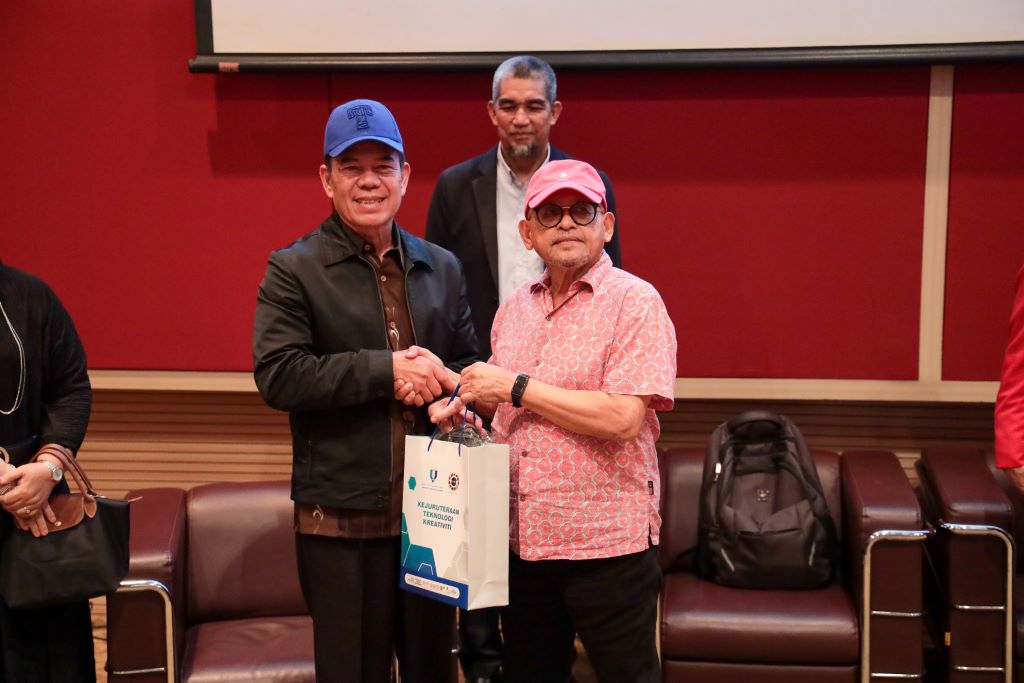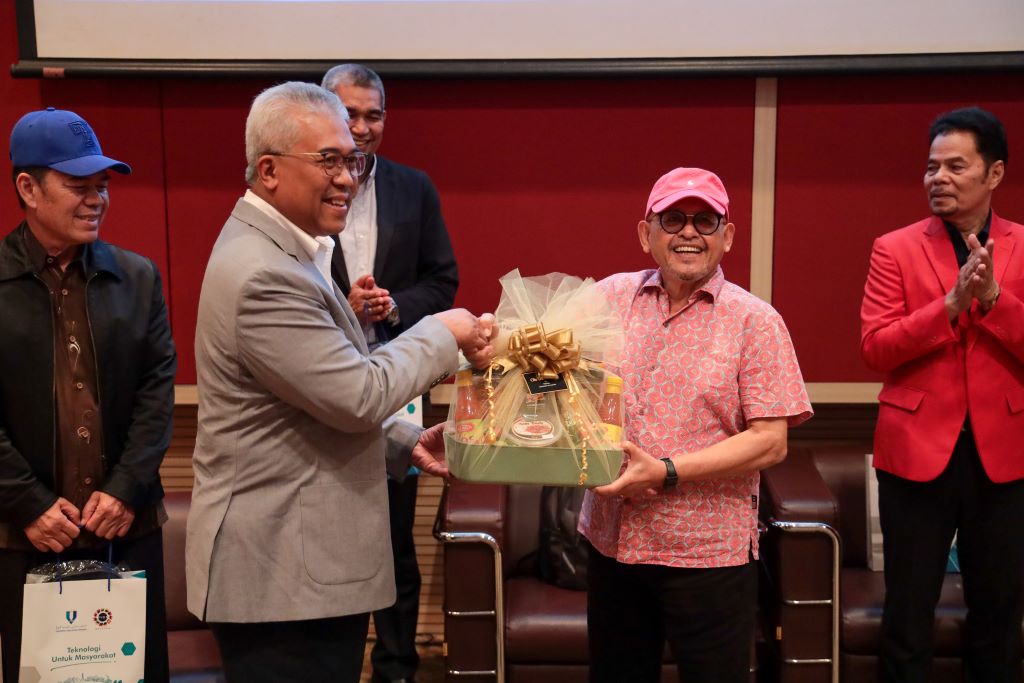The Maestro’s Voyage Documentary Special Screening reveals historical treasures
PEKAN, 17 January 2023 - Universiti Malaysia Pahang (UMP) organised a Documentary Special Screening (The Maestro’s Voyage) and Scholar Dialogue Session that revealed the history of the Malay empire starting in Melaka as a rapid international trading port and a centre for education, economy, propagation of Islam and Malay arts.
It includes the greatness of Malay maritime, Malay armaments, and the development of Islam in Malacca before expanding to other countries.
Attending the special screening of the documentary organised by the Institute of Civilisation and Strategic Studies (ITKAS) and Centre for Human Sciences (PSK) was the Chairman of the UMP Board of Directors, Tan Sri Dato’ Sri Dr. Abdul Aziz Abdul Rahman.
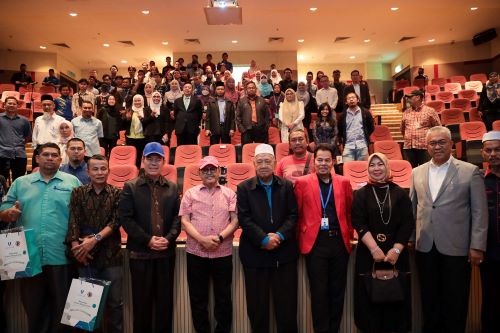
The programme was also attended by UMP Vice-Chancellor, Professor Dato’ Ts. Dr. Yusserie Zainuddin, Deputy Vice-Chancellor (Research and Innovation), Professor Ts. Dr. Kamal Zuhairi Zamli and Pahang State Cultural Council Chairman, Dato’ Sri Hajah Shahaniza Haji Shamsuddin.
Also present were the President of Dewan Persuratan Melayu Pahang, Datuk Professor Emeritus Dr. Haji Mohamad Mansor Abdullah and Director of Pahang State Library, Nor Zahira Azmi.
In his keynote address, Tan Sri Dato’ Sri Dr. Abdul Aziz congratulated Roslan Madun who had just been appointed as a Consultant Fellow at PSK UMP and was willing to share his interesting work and knowledge through this documentary.
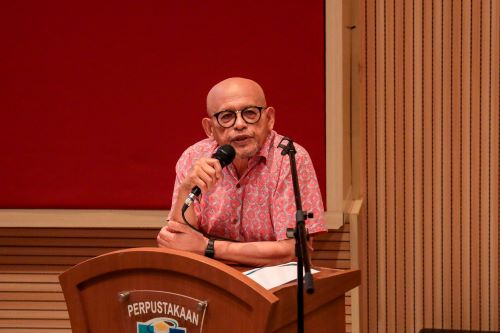
He said this inspiring screening showcased the previous Malays who could travel around the world and the Malay civilisation based on a great voyage.
“Our country was once a worldwide attraction with a wealth of produce and spices as alternatives in cooking.
“We will further expand these images to enhance the understanding and identity of our nation’s strength,” he said.
In the meantime, the existence of ITKAS at UMP, which is a technological university, will study the influences and civilisations that shape identity, especially in Pahang in terms of clothing, weaving, food, tradition, history of the Pahang River, fame, inscription stones and others.
A forum session was also held featuring three great panels namely Film Director, Roslan Madun, actor Zaidi Omar and ITKAS Director, Associate Professor Dr. Hasan Ahmad.
Meanwhile, UMP Senior Publishing Officer Muhammad Azli Shukri served as a moderator.
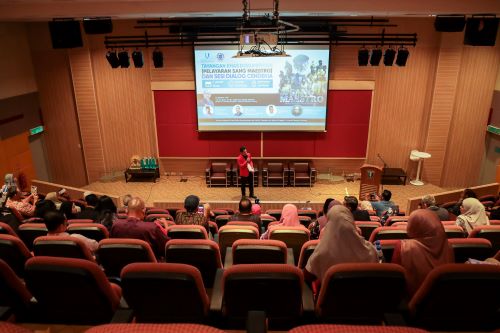
According to Roslan, who is also known as a folk singer, the story of Malays who are very clever, brave and have a high spirit of solidarity must be widely spread so that our generation today is not easily fooled by negative things that can weaken the spirit of the Malays.
“Stop trusting Malays are lazy, forgetting easily, and so on because these terms will damage the younger generation who will be the leader of the country one day.
“Malay history must be studied properly and these strengths and greatness are because the Malays live based on Islam.
“In fact, the Malays once controlled the sea along the Strait of Malacca,” he said.
He said that the Malay Government controlled the ocean trade that built civilisation starting with Srivijaya centuries ago until now in the Malay Archipelago.
He admitted that in the production of the documentary of The Maestro’s Voyage, he consulted several historians to achieve the goal of conveying information related to the historical civilisation.
Meanwhile, according to Zaidi Omar, one of the actors involved in the documentary The Maestro’s Voyage, Malay culture and manners are not taken lightly.
“Malays are very concerned with speech and polite manners in their daily actions.
“It is now seen that the younger generation does not know many historians who have contributed to the country probably because of the lack of reading interest among them.
“I hope the younger generation will be more attentive to the previous struggle and enculturate their attitude,” he said.
ITKAS Director, Associate Professor Dr. Hasan Ahmad said that ITKAS will organise programmes on Malay civilisation like this to foster the current generation’s interest.
“It is the responsibility of educators to disseminate history through various approaches.
“In fact, historical writing is crucial because these historians will search records to study history and previous events,” he said.
By: Nor Salwana Mohammad Idris, Corporate Communications Division, Chancellery Department
Translation by: Dr. Rozaimi Abu Samah, Engineering College/Faculty of Chemical and Process Engineering Technology
- 68 views


